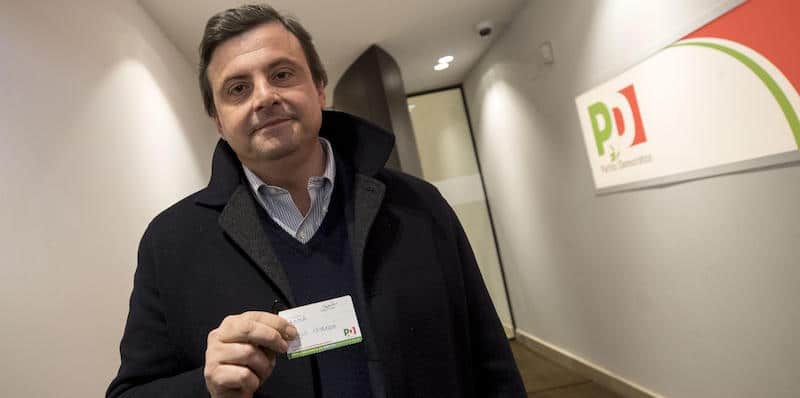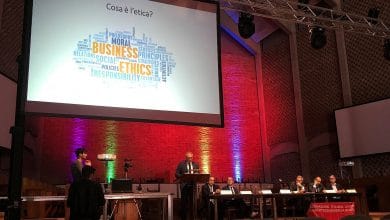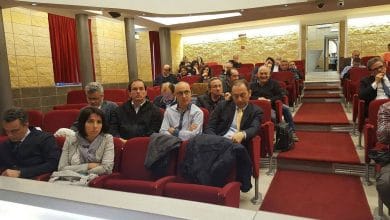
We receive and gladly publish.
I'm knocking again on the door of your sites asking for hospitality to talk about a topic which, although not specifically concerning the Scientific Informant, involves him asking him for a further effort to further distance his gaze from his own navel.

ANSA/MASSIMO PERCOSSI
The few words, comparable to a motto, pronounced by Calenda after his enrollment in the Democratic Party kept me awake one night. Out of curiosity I went in search of his work and political history, all spent with the part that I believe is not the bearer of our interests. So I looked into his family history and there, perhaps, I found the answer to my doubts.
Carlo Calenda, a few years ago held roles in Confindustria that placed him as a counterpart of the workers, even an opponent when he ran with a civic list created by the supporters and proponents of the Fornero reform which only produced tears among the workers.
Today I heard shocking words coming from his lips, perhaps because his family upbringing is different from the working and political one of the past.
Perhaps, it was precisely his family heritage that made him pronounce the words "we need to go back to defending the Worker and not the job“.
For how many decades, perhaps six or more, has the Worker not been at the center of the Union's interests except in institutional discourses?
Has the Calenda of the past, necessarily bearer of the interests of Confindustria and antagonist of the interests of the Worker, become our friend?
It puts the Worker at the center and not the work; the statement has an important meaning, focusing the interest on the individual does not risk confusing him with the generality of the work. Focusing on Work at the expense of the Worker has led us to the virtual, as happened for the economy and only a few have the ability to maneuver.
It would be desirable for the Union to go back to defending the Worker because the Worker is enough to defend work.
Over the years the Union has taken the opposite path. From the Worker from which he was born and supplied himself with means, he passed to feed himself by discourse on the defense of work in general, together with the shares of the cards he also put this more useful defense into annuity
Institutionally and economically and to maintain it, it only and tenaciously pursues the renewal of contracts.
Out of devotion to this Moloch has abandoned the defense of the Individual except for rare exceptions which are furthermore opposed within it.
With the current dynamics, if I declared myself a staunch defender of nature accrediting myself as an interlocutor at the table of its great defenders or exploiters and I didn't care about the grove that was cut down a few blocks from me, this would not delegitimize my role, allowing me to be able to continue discussing of the salvation of the world.
I fear that only the Workers who lived in Di Vittorio's time heard the strong words spoken by Calenda from the Union.
I am dismayed by this current Middle Ages, forced to witness struggles between gangs for the affirmation of personal power that has nothing to do with everything social except through promises that must never be kept.
Is the counterpart of the past the friend of today? Does yesterday's friend cultivate friendships that our yesterday's antagonist abandoned?
I'm thrilled.
The only thing I understand is that the crux lies in the difference between the nouns "Worker" which identifies a human being and "Work" which, identifying a general interest, wants to bring everyone together in the same cauldron so as not to guarantee anything to anyone.
The point is: should we defend the Work or the Worker?
 Referring to the recent history of contract renewals, where Labor has strenuously defended itself, from 2006 to the last, about 15,000 ISFs have been fired in favor of a more general defense of Labor which has passed through agreements between the parties to circumvent the Law which identifies in the informant a social role aimed at the appropriate use of drugs, instead favoring the interpretation of a hybrid figure more useful to the private sector than to the social one. Reflecting on this, it makes me think that delegating the defense of Labor is not useful for the Worker while it would be very useful for someone to be delegated for the defense of the Worker, if there is a Union, come forward and defend the Worker also through renewals contracts but not only with them. Il corporalato, also widespread in large companies, which mainly affects the weakest workers who are less protectable (after the jobs act it is a growing group) must be fought with hand-to-hand combat and this, in my immodest judgment, is the meaning to be attributed to the Calenda's statement.
Referring to the recent history of contract renewals, where Labor has strenuously defended itself, from 2006 to the last, about 15,000 ISFs have been fired in favor of a more general defense of Labor which has passed through agreements between the parties to circumvent the Law which identifies in the informant a social role aimed at the appropriate use of drugs, instead favoring the interpretation of a hybrid figure more useful to the private sector than to the social one. Reflecting on this, it makes me think that delegating the defense of Labor is not useful for the Worker while it would be very useful for someone to be delegated for the defense of the Worker, if there is a Union, come forward and defend the Worker also through renewals contracts but not only with them. Il corporalato, also widespread in large companies, which mainly affects the weakest workers who are less protectable (after the jobs act it is a growing group) must be fought with hand-to-hand combat and this, in my immodest judgment, is the meaning to be attributed to the Calenda's statement.
As long as subordinate work exists there will be a need for the Union and collective bargaining but one day we will find at the center of the Union the words
"Worker's Defense"?
A last comment that concerns the ISF more closely is the Register and its long troubled history.
For 40 years tenaciously pursued by the ISF and punctually at every goal that seemed achievable, crippled by the melina of Farmindustria or the Syndicate.
I understand Farmindustria which sees in the Register a limitation on its power to manipulate individual ISFs to obtain more commercial than scientific services.
I don't understand the hatred of the Syndicate.
The Register is not the devil, it is not an antagonist of the Syndicate, it is not one of its competitors, so what is this distrust due to, ignorance or in the face of the obstacles posed by the Syndicate does the counterpart offer him other types of advantages?
Thus neither the Work nor the Worker defends itself, which is the objective of Farmindustria and it is the only one, among all the actors of this theater, to have always achieved the objectives it has set for each contract renewal.
Antonio Giammei UILTEC RSU Angelini delegate
Recently, on the issue of work/worker, the role played by the trade union has been called into question, which has preferred the path of concertation to sign contract renewals, rather than concentrating its activity on defending workers' rights, and in the specific case of the ISF, to safeguard a role that the law describes as of public utility.
However, if we hope for a turning point in the development of industrial relations, we cannot fail to di photograph and analyze the current situation of the pharmaceutical.
As we know there has been a dramatic downsizing in headcount numbers.
There are many causes, the most important of which is the fact that many companies, especially multinationals, have directed their development, research and marketing plans in a super-specialist direction with the gradual but progressive abandonment of basic medicine. Secondly, because other professional figures, such as local doctors, and to a minimal extent key accounts, have joined the ISFs, often taking over their skills and role.
All this has led to a drastic change in the organizational models of the companies and I am simply referring to the number of personnel (the lines of scientific information) without going into the merits of the technical issues of the role, the specific skills required by law and by the contracts which in any case represent an important part of the general problem, which should be explored and discussed.
Furthermore, we must also highlight that a large part of the ISF are employed in an "emerging" sector which is that of nutraceuticals.
In this case, the first consideration to be made is that if these products are drugs, whoever promotes them plays the role of ISF and as such must be subject to law 219/06.
A different contract from that of the chemist, in which the figure of the ISF is declared according to the criteria of the law (even if some recent modifications have been criticized because they are commercial in nature), can still be used as long as it does not conflict with the law itself. In my opinion this is the first big problem to solve considering the rapid and continuous growth of the sector.
What is certain is that, in any case, the role of the ISF should be re-discussed at the trade union table among all the interested parties both to stem the continuous losses and the continuous orientation of the profession towards an increasingly commercial role. Furthermore, as mentioned, the development of a sector similar to the pharmaceutical sector must be taken into account in order to ensure that the role of the informant is more congruous with the needs of that sector in compliance with the conditions imposed by law.
Mirko Ferrarini
Dearest Mirko, we are preparing to renew the Contract in the coming months. This renewal is loaded with many economic expectations for a relaunch, the theme of generational turnover, the enhancement of sector relations on the subject of safety, the environment and training, above all the organizational changes due to the innovation introduced by industry 4.0.
The comparison cannot fail to address the issues related to the role of scientific information on medicines. All the topics concern the protection of work, but each of them necessarily includes the protection of workers. An example, the Tris agreement provides for 5-year early retirement for workers in the sector who retire earlier, and will be used for the entry of young unemployed people (workers and workers). Aifa proposes to review the guidelines of scientific information and involves the associations of companies and Filctem asks Aifa to be listened to by participating and bringing the point of view of the workers.
As you can see Mirco we are trying and we are not giving up an inch. the task is certainly difficult and suffers from many obstacles..... but we must proceed with determination and without delay in the activity put in place for about two years, following the previous renewal , asserting the reasons of the union, of the workers and above all of the Italian citizens who are the real users of any change in the system which cannot be considered only an economic matter for companies in the sector but also a value for our communities, restoring centrality to an ETHICS figure of scientific information.
Sergio Cardinali – Filctem CGIL
Dear Mirko, your analysis, once again, is flawless. Personally, in the last three years, I have been doing my utmost to pass on the concept according to which anyone who goes to the doctor to present the characteristics of any type of product that the doctor then recommends to the patient must be a scientific informant according to the canons dictated by the legislation current. At present, since there has always been no control by the relevant bodies (AIFA and the Ministry of Health), we find ourselves in the position of seeing this profession exercised by young people without a degree or with a degree other than that indicated by 219/2006.
However, we cannot fail to take into account that, whether they have a degree or not, these young people are workers who must be protected today as much as the others. An amnesty similar to the one implemented in 92/93 should be done, but afterwards it must be clear that the law MUST be respected. In this sense, I acknowledge Filctem-CGIL's great commitment in view of the imminent renewal of the contract. To what was stated by Sergio Cardinali, a tireless proponent of this restoration of legality, I would like to add my own consideration: AIFA should deal with compliance with the rules and therefore with ethics in the Health Service, for which it should deal, more than with companies, which have an evident interest more towards the commercial aspect, with trade unions and category organisations. The former because they are those who deal with work and workers, therefore also with the rules of engagement, the latter because they are those who have always dealt with the defense of the ethics and deontology of the profession of the ISF, but above all with the defense of the constitutional right to care of the citizen.
As FEDAIISF, you know, we are strongly committed and aiming towards the legal recognition of our profession which would put an end to the commercial havoc of the figure of the scientific informant. My personal opinion is that in a virtuous system for scientific information, there should be discussion and close collaboration between institutions of the Health Service (AIFA and the Ministry of Health), trade unions, the Order of Doctors, trade associations (FEDAIISF, the only one existing) and business associations. As long as we are excluded from the decisions, there will always be the suspicion (or the certainty) that some mess-ups have taken place.
Antonio Mazzarella – President Fedaiisf
Related news: Reflections on whether it is better to defend Francesca Boni's work or worker






